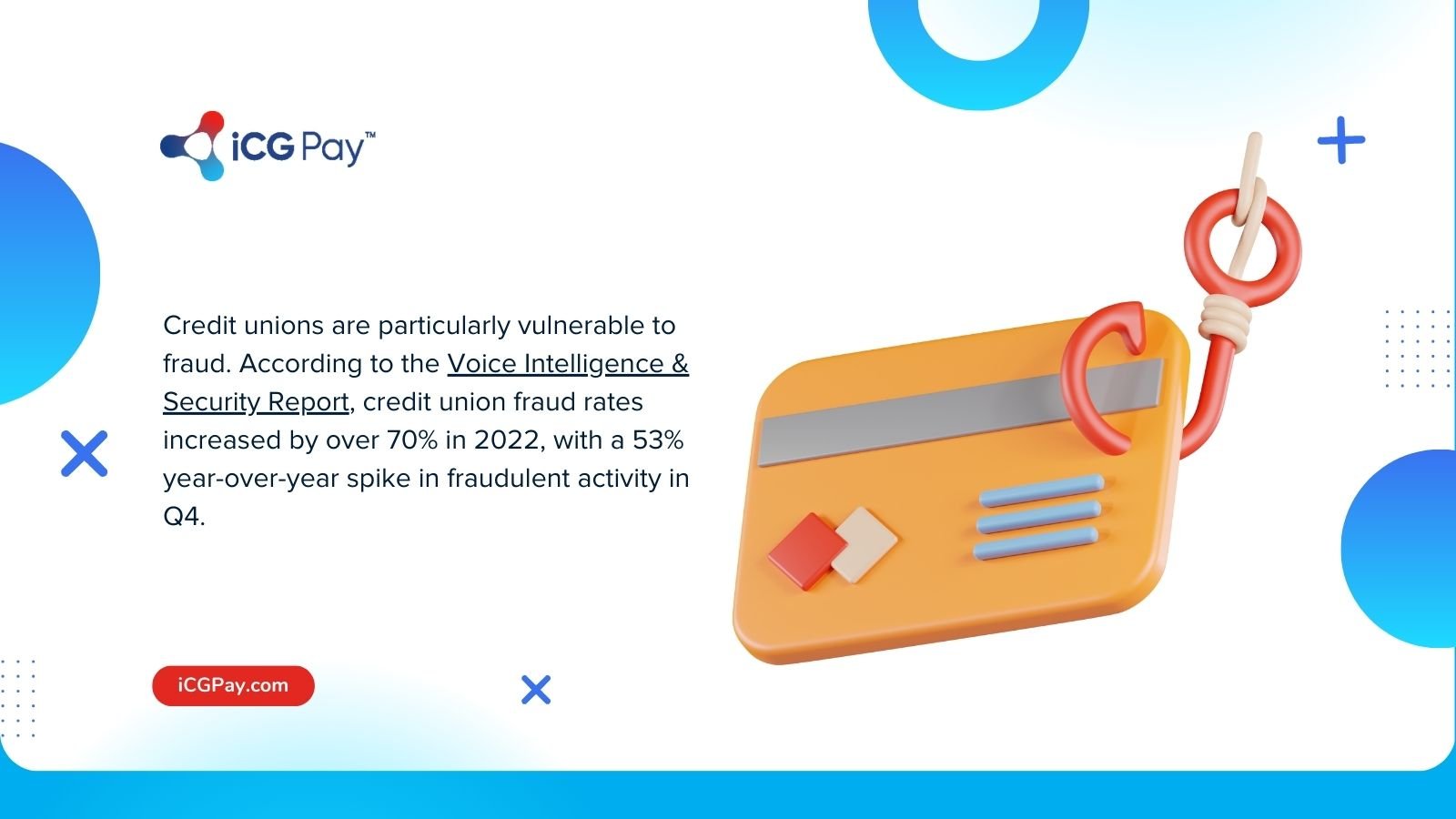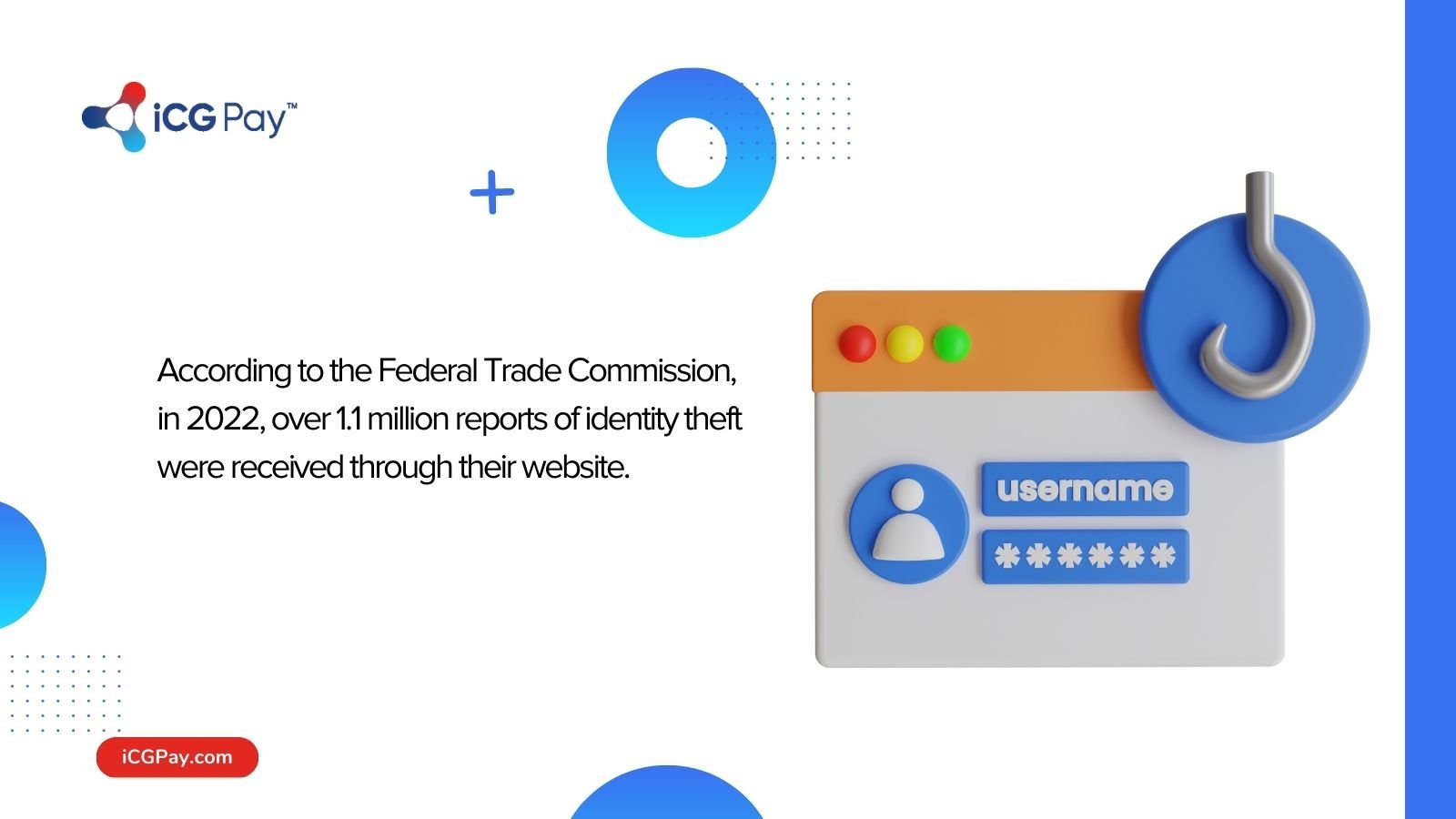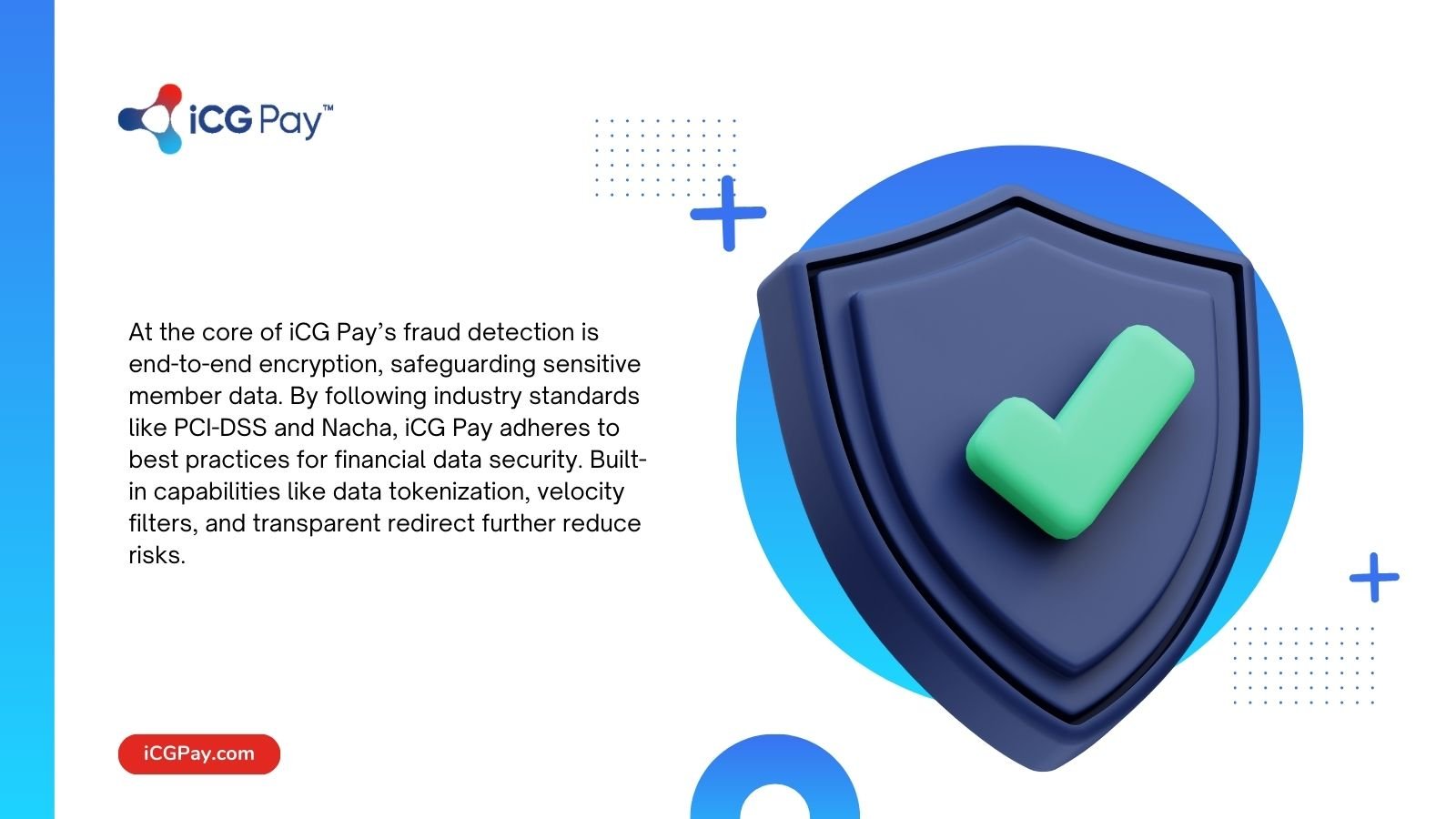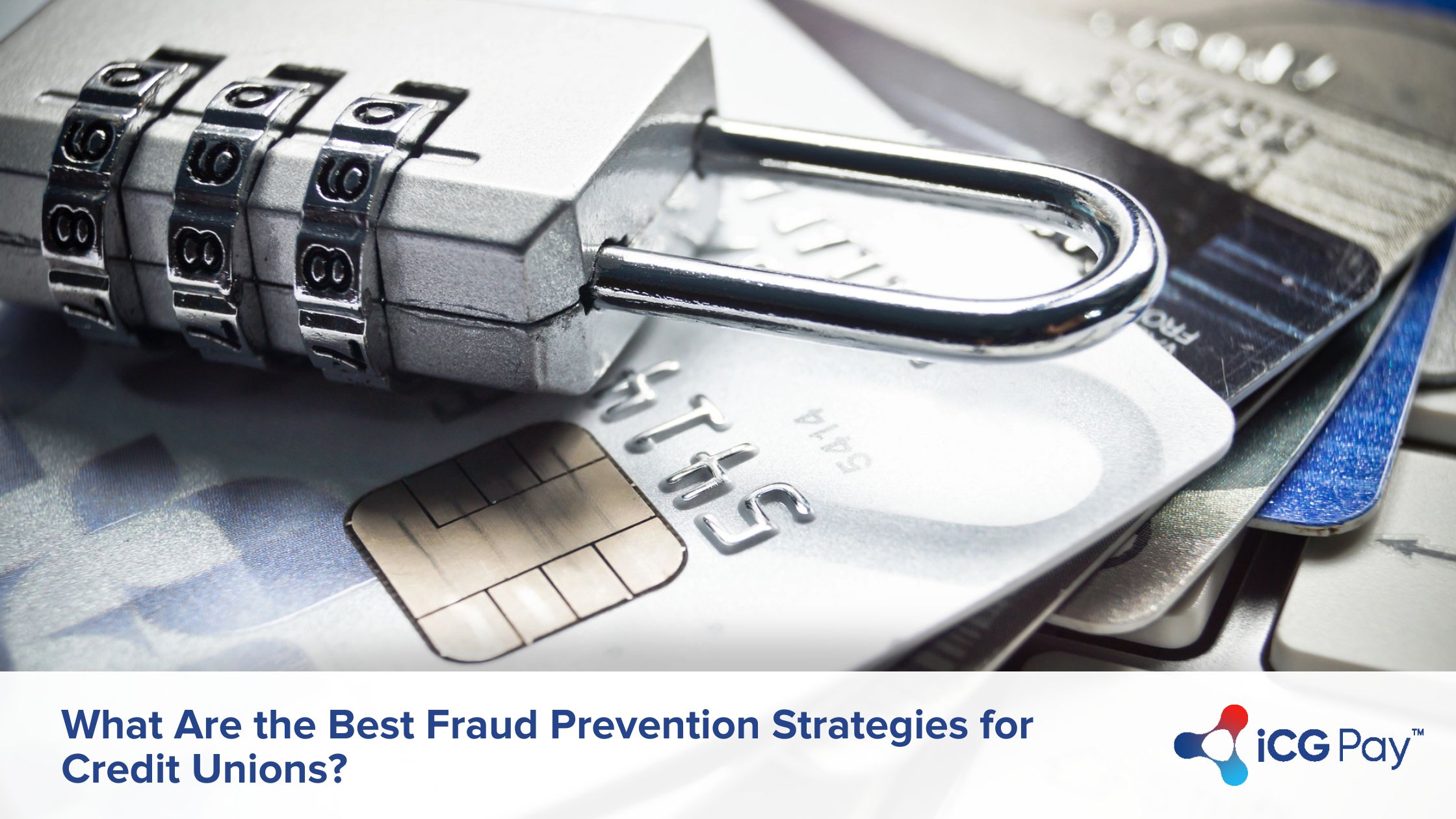Credit unions are particularly vulnerable to fraud. According to the Voice Intelligence & Security Report, credit union fraud rates increased by over 70% in 2022, with a 53% year-over-year spike in fraudulent activity in Q4.
Furthermore, an Alloy survey found that 75% of credit unions reported fraud losses exceeding $500,000 in 2022.
Fraudsters are becoming increasingly sophisticated, exploiting evolving technologies to target credit unions.
Protecting your credit union against such fraud goes beyond traditional methods. You need to incorporate advanced technologies, comprehensive internal controls, and member education initiatives.
In this article, we'll explore the best practices and solutions that credit unions can leverage to guard against fraud.

What Are the Most Common Fraud Threats Facing Credit Unions?
Credit unions operate in a dynamic threat space. Fraudsters continuously evolve their tactics.
Understanding the most common types of fraud targeting credit unions is the first step toward implementing effective countermeasures.
Remember that no credit union is immune from the surge of financial crimes targeting the industry. Here are the most pressing fraud concerns cited by credit unions today:
1. Card Fraud
Card fraud involves the unauthorized use of debit or credit card information to make purchases or withdraw funds. As credit unions issue large volumes of debit and credit cards to members, they face substantial risks from card-present and card-not-present fraud.
In a card-present fraud scheme, criminals use skimmers installed at ATMs or gas pumps to read and store card information from the card's magnetic stripe. They then encode that data onto a counterfeit card's magnetic stripe to withdraw cash from ATMs or make purchases. EMV chip cards have made it harder to counterfeit cards but have caused fraudsters to shift to card-not-present fraud.
In card-not-present schemes, fraudsters obtain card numbers from major merchant data breaches or through phishing. They then use the card details to purchase online, over the phone, or by email, where no card is physically presented.
2. Identity Theft
According to the Federal Trade Commission, in 2022, over 1.1 million reports of identity theft were received through their website.
Identity theft poses significant challenges for credit unions. Fraudsters use stolen personal information to open fraudulent new accounts or take over existing member accounts.
Criminals then use stolen identities to open bank accounts and credit cards or even take out loans in the victim's name.
Also, with compromised credentials, fraudsters may access existing accounts, drain funds, or make unauthorized purchases.

3. Phishing Scams
In phishing scams, fraudsters send fake emails or texts appearing to come from the credit union to deceive members into revealing usernames, passwords, card information, or installing malware.
With stolen credentials, criminals take over accounts or open new fraudulent accounts.
Sophisticated phishing emails often mimic credit union messaging and websites to fool members into entering info on fake pages. Fraudsters also impersonate credit union staff, requesting sensitive personal data on calls or emails.
4. Internal Fraud
While external attacks grab headlines, insider fraud annually causes substantial losses for credit unions.
Internal schemes include theft, embezzlement, self-dealing, manipulating records, opening fake accounts, or colluding with members or outside criminals.
Poorly trained, motivated, or screened employees with too much access and oversight responsibility are higher fraud risks. But even longtime, trusted employees can become threats through greed, financial troubles, or disgruntlement over time.
How Can Credit Unions Protect Themselves and Their Members From Fraud?
With fraud expanding at staggering rates, credit unions must make fraud mitigation core to their risk management strategies.
Comprehensive programs that blend advanced fraud-fighting technology with stringent internal policies and procedures offer the best security.
1. Invest in Fraud Prevention Software
Sophisticated fraud platforms leverage artificial intelligence and machine learning. They analyze transactional data in real-time and detect suspicious activity that may indicate fraud.
They apply rule-based models tailored to the risks credit unions face across products. These AI models also incorporate information on compromised cards and emerging fraud trends from global threat intelligence.
Here's how these sophisticated tools work:
- Behavioral Analytics: Software establishes baseline behavior patterns for members and their transactions. Deviations from this norm, such as unusual locations, high-velocity spending, or atypical purchases, trigger fraud alerts.
- Artificial Intelligence (AI) and Machine Learning: AI-powered algorithms constantly learn and adapt, detecting subtle patterns and anomalies that might evade human detection. These algorithms pinpoint risks often invisible to manual review.
- Device Intelligence: These tools link known fraudulent devices to transactions. Attempts from devices associated with past fraud are immediately blocked, preventing further attempts.
- Customizable Rules: Reputable software allows tailoring fraud risk assessment to your credit union's risk profile and member base. This ensures targeted monitoring.
Credit unions can use sophisticated fraud-fighting platforms like iCG Pay, a Nacha Preferred Partner for ACH Solutions and automation.
Purpose-built for credit unions, iCG Pay, integrates seamlessly into existing infrastructure through APIs to drive rapid time-to-value.
At the core of iCG Pay’s fraud detection is end-to-end encryption, safeguarding sensitive member data. By following industry standards like PCI-DSS and Nacha, iCG Pay adheres to best practices for financial data security. Built-in capabilities like data tokenization, velocity filters, and transparent redirect further reduce risks.
Specifically, iCG Pay’s hosted payments portal processes transactions without data ever touching the credit union’s systems. This reduces PCI scope.
On top of robust encryptions and data protections, iCG Pay centralizes essential fraud-fighting tools like behavioral analytics, AI learning, and real-time alerting tailored to credit unions' needs.

2. Implement Strict Internal Controls
Internal controls are the policies, procedures, and systems your credit union establishes to safeguard assets and prevent fraudulent activities.
So, although technology delivers vital detection capabilities, financial institutions must complement fraud prevention platforms with stringent internal policies, procedures, and oversight measures.
Key policy areas requiring robust protections include:
- New account openings
- Transaction verification
- System permissions
- Data access
- Activity reviews
No single employee should have full control over any critical financial process. Breaking down tasks among multiple staff makes it harder to conceal fraudulent actions.
Also, ensure it requires two authorized individuals to approve sensitive transactions like large transfers or account changes. This adds an extra layer of scrutiny.
3. Educate Your Members
Public awareness of common tactics makes your fraud prevention efforts more effective.
Educated members better identify risks on their own and know how to report concerns. This extends your fraud monitoring reach.
Arrange for fraud awareness training. Educate members about recognizing phishing emails, texts, and phone calls. Emphasize that your credit union will NEVER ask for sensitive information through these channels.
Also, promote strong password practices. Tell the members to avoid easily guessed words, reuse of passwords, and sharing passwords with anyone. Encourage password managers for secure storage.
Don’t forget to provide a clear incident response plan for members to report suspected fraud or unauthorized activity immediately. Make reporting convenient with multiple channels (phone, online form, in-person).
Partner with iCG Pay to Safeguard Your Credit Union
With fraud growing over 70% annually, all credit unions need robust preparations and response capabilities in place now.
However, navigating this alone can be overwhelming. Partnering with a security-focused payment solutions provider like iCG Pay empowers your credit union with the latest tools and expert guidance.
Schedule a 30-minute discovery call to learn how our fraud prevention tools can help your credit union and secure your future growth.




